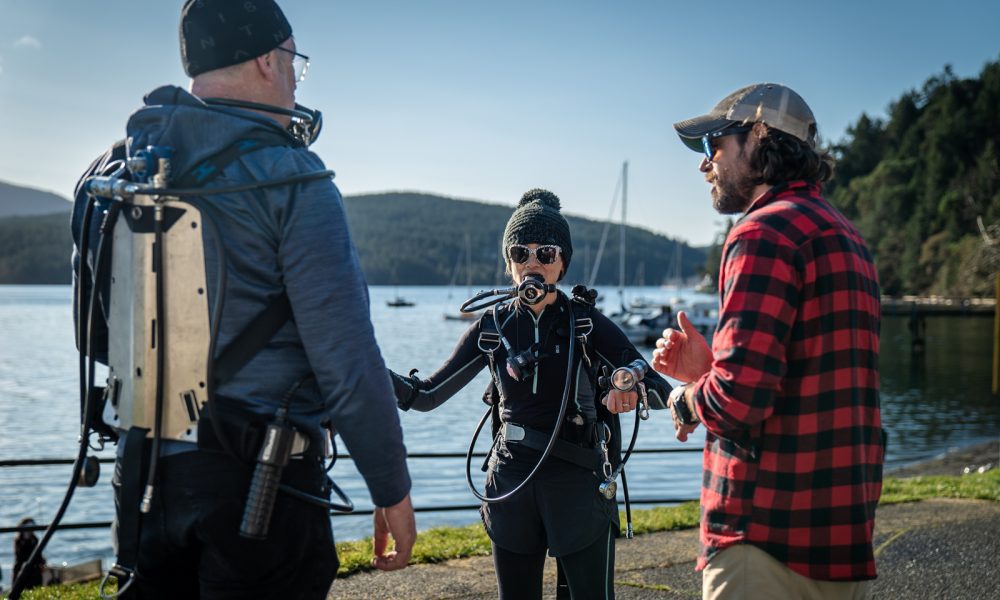Eric Sedletzky
Contributor
I think a lot of this boils down to supply and demand.Anyone who has ever paid for any sort of training for any kind of other sport knows that scuba instruction is ridiculously cheap. The idea that scuba instructors are ridiculously underpaid is well accepted.
Yet, in ScubaBoard threads you will see people saying the exact opposite. If I am a skier and I decide to take a class to learn how to ski gates so I can compete in NASTAR racing, of course it is assumed I will pay a lot of money for that class. If I am a scuba diver and want to take a class to learn a more advanced scuba skill, people will pile on in threads, calling the fact that such a course would even be offered an "agency money grab."
Anyone reading a typical ScubaBoard thread will assume that the typical scuba diver believes all instruction should be offered free, and any instructor who hopes to be paid for instruction is a money-grabbing piece of pond scum. I cannot think of any other activity where this is true.
In those other activities they are more mainstream and more visible. More visible? Yes, what I mean is spectators can visually see the activity as a casual observer. The only ones that require close up video footage would be sky diving and perhaps a helmet mounted go pro for bat suit flying, which is absolutely thrilling to watch! BTW.
Surfing, snow boarding/skiing, riding horses, race car driving, sky diving, etc. these are all visible sports.
Diving is horribly under represented. It’s not particularly easy to film to make it look extreme, it’s not fast and daredevilish, and the fact is a lot of people like activities that are terra firma.
People who are drawn to activities underwater are a very small group. I believe it is an acquired love. For me it was a fairly gradual immersion into the sport, first by fishing off the rocks, then getting a wetsuit to wade out to better rocks, to getting a kayak to get out to the kelp beds to get more fish, to seeing abalone divers then realizing I almost had all the gear, to then getting all the gear and beginning to freedive, then into scuba. It was a gradual progression over several years.
To expect a person off the street to walk into a dive shop cold and just sign up whole hog and get into diving complete with a full set of new gear and thousands of dollars in training is pretty far fetched.
How do people get inspired? Do they go on vacation and see others enjoying scuba as they float above snorkeling? How many average people can just fly off somewhere to go on a tropical vacation on regular basis?
How about local diving, is it geographical logistics that might be an incentive? For me it certainly was.
There are golf courses everywhere, but there aren’t oceans everywhere.
So all this leads to very low demand.
You can’t beg people and try and entice them to get into something they don’t really have a passion to do with ultra cheap training. The dive industry is trying to look at diving as a mass production industry and figure they’ll make up numbers with volume by offering cheap entry incentives. It’s not going to work that way. You’re not selling burgers.
The ones that want to learn to dive will learn to dive and they will pay for good training. GUE is a good example of that, just look at what a week long course costs and people are signing up.
The pleading and begging and offering dirt cheap training needs to stop, it’s embarrassing.
This isn’t the 1980’s.
And don’t listen to most of these people on SB, you have to realize that it’s an international group and in some countries it is customary to run a more volunteer approach to training through clubs and such for the betterment of the “community”.
This is not LA County 1959 either where it was a county program.
That’s not how it is now, you want something good you pay for it.
Freebies? Why? Why do most people think they are so special to always expect a freebie? Is it just because they are cheap?



